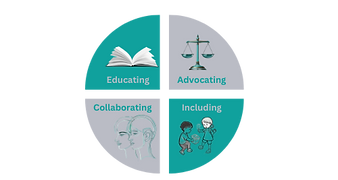

Learn to Play
Learn to Play Therapy is a hands-on approach designed to help children, especially those with developmental delays, autism, language disorders, and other neurodiverse conditions, engage in pretend play. It is aimed at children up to 10 years old who struggle with social understanding and narrative skills. The therapy focuses on building narrative thinking and pretend play abilities, encouraging children to create stories and characters. The goal is to enable children to independently initiate pretend play, fostering social relationships and enhancing their play skills to their fullest potential.
Play Skills
How does Pretend Play Enhance your Neurodivergent Child?
Play skills are essential for all children, but they hold particular significance for neurodivergent preschoolers and school-aged children. Play serves as a natural bridge to learning and development, offering unique benefits that support their
growth in multiple areas.
-
Narrative Language: Play provides opportunities for neurodivergent children to practice and expand their vocabulary, learn new concepts, and improve communication skills. Through interactions during pretend play, children experiment with language, express their ideas, and understand the social rules of conversation.
-
Problem Solving: With her own children diagnosed with ASD and ADHD, she expertly balances her roles as a mother and professional.
-
Metacognition & Flexible Thinking: Play encourages creativity and critical thinking. Whether solving problems in a game or building structures with blocks, neurodivergent children develop their ability to think flexibly, plan, and reason. Play is a fun and effective way to build cognitive skills that will support academic success later on.
-
Self- Regulation: Engaging in play allows children to express and process their emotions. It offers a safe space to practice coping strategies, manage frustration, and develop emotional awareness. For neurodivergent children, play can also support their understanding of emotions and help them navigate sensory overload or anxiety in a controlled environment.
-
Social Competencies: Play helps children learn how to interact with peers, share, take turns, and understand social cues. For neurodivergent children, guided play activities can teach vital skills like empathy, cooperation, and conflict resolution, which might be challenging in more structured settings.
-
Motor Skills and Sensory Integration: Physical play helps improve fine and gross motor skills. For neurodivergent children, activities that involve movement or sensory play can aid in sensory integration, helping them to better understand and process sensory input from the world around them.
-
Self-Confidence and Independence: Mastering new play activities boosts self-esteem. For neurodivergent children, play fosters a sense of accomplishment and independence, whether they are figuring out how to play a game on their own or learning to take on new challenges with peers.
-
Logical Sequencing of Thoughts: ???
Overall
In short, play is not just a form of entertainment for neurodivergent children—it’s a critical tool for developing the skills they need to thrive socially, emotionally, and academically. By fostering these play skills, parents and educators can help neurodivergent children navigate their world with confidence and success.
.jpg)
What the Sessions Include:
-
Assessment of Current Play Skills: Ruth will observe your child’s play to identify strengths and areas for improvement, such as communication, social interaction, and emotional regulation.
-
Tailored Strategies: You’ll receive personalized strategies and activities that encourage social play, language development, emotional expression, and cognitive growth.
-
Guidance on learn to Play at Home: Learn how to create a supportive environment that encourages imaginative and cooperative play, helping your child build critical skills in a natural and enjoyable way.
-
Practical Tips for Everyday Play: You’ll be provided with easy-to-implement techniques that fit into daily routines, making it simple to practice and reinforce play skills at home.

Why Parents Should Book a Session with Ruth?
Why Parents Should Book a Session with Ruth:
-
Support Skill Development: Neurodivergent children often face challenges with social, emotional, and cognitive skills. Play is a powerful way to develop these abilities in a fun, engaging manner.
-
Enhance Social and Emotional Well-being: Play helps children understand and express emotions, regulate behaviors, and interact with others, which are crucial for their social success and emotional health.
-
Boost School Readiness: Building strong play skills can improve your child’s ability to thrive in a school setting by enhancing communication, problem-solving, and social engagement with peers and teachers.
-
Customized Support: Every child is unique, so personalised strategies ensure that you’re supporting your child in a way that aligns with their specific needs and strengths.
-
Promote Independence and Confidence: As your child masters new play activities, they gain confidence, which positively impacts their learning and growth both at home and in school.
If you want to help your neurodivergent child develop the play skills they need to thrive socially, emotionally, and academically, book a Play Skills session(s) today. It's an investment in your child’s future success.
